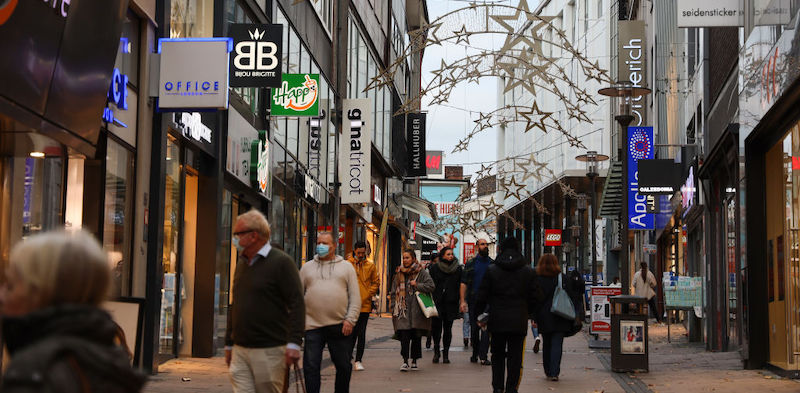The measures taken in recent months in Europe to contain the coronavirus epidemic seem to be working and although the situation remains very serious, things are improving. In many countries there is discussion about possible easing of measures around the holiday season, albeit as he wrote on Sunday the Financial Times this time the governments seem to want to avoid the word “reopening”, limiting the risks of a new deterioration.
In almost all European countries, the number of new cases registered daily has begun to decrease in recent weeks, a sign that the restrictions imposed are giving their first results.
At the end of October, more than 1,300 new cases per 100,000 inhabitants had been registered for several days in Belgium (in Italy they never exceeded 600) and the situation was one of the most serious situations in Europe. The lockdown decided by the government, with limitations similar to those imposed during the first wave, however, it seems to have worked: the new infections have been decreasing for weeks and today they are back to values similar to those of other European countries.
– Read also: Countries left without coronavirus, for real and fake
In France, on October 28, President Emmanuel Macron had announced a new national lockdown, with restrictions on movements, closures of bars, restaurants and shops of non-essential goods. France arrived from a month of steady and rapid growth in the number of infections, with an increase in the occupation of intensive care places faster than expected by the government. Since then, the number of new cases has begun to decline and is now significantly lower than in Italy.
In Spain, Austria and the Netherlands, the contagion curve has had significant improvements in recent weeks; in Germany, the increase in new cases has been constant and controlled for several weeks and in Portugal there are signs of a possible slowdown in the epidemic. Even in Italy for a few days there has been more optimism on the trend of the epidemic situation, notwithstanding the stabilization of data on new infections still corresponds to a situation of serious difficulty in hospitals and the health system.
These positive figures have led many governments to address possible loosening of restrictive measures, with the aim of not unduly damaging the economy during the profitable Christmas season and to allow those who want to celebrate Christmas to some extent. In almost all countries, however, the possible reopenings in the coming weeks will be limited and treated with more caution than last summer, when in a few weeks, almost everywhere, social and economic life had returned to being very similar to the previous one. the pandemic.
In France there is talk of reopening in three phases, between December and January, depending on how the data on the epidemic will be, but the government explained on Sunday that most of the restrictions will remain in force. In Germany, where less stringent restrictions have been imposed than in other countries and the situation is less severe, the measures are likely to remain in place for a few weeks to avoid a further deterioration close to the Christmas holidays. In Italy, possible limited reopening of commercial activities before Christmas is being discussed, but also new restrictive measures to prevent the holidays from leading to a new increase in infections. According to the newspapers, France, Germany and Italy are also studying common measures to limit or prohibit the ski season.
Although the increase in infections has stabilized or is decreasing, in fact, for many countries the situation in hospitals is still very serious and employment levels in wards are high and worrying. As expected, after the worst moment of the increase in infections, the number of new hospitalizations and deaths remained significantly high, which in some countries – such as Italy, France and Germany – have been growing for weeks.
– Read also: How a remote parliament works
–


